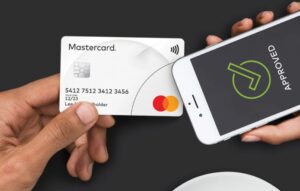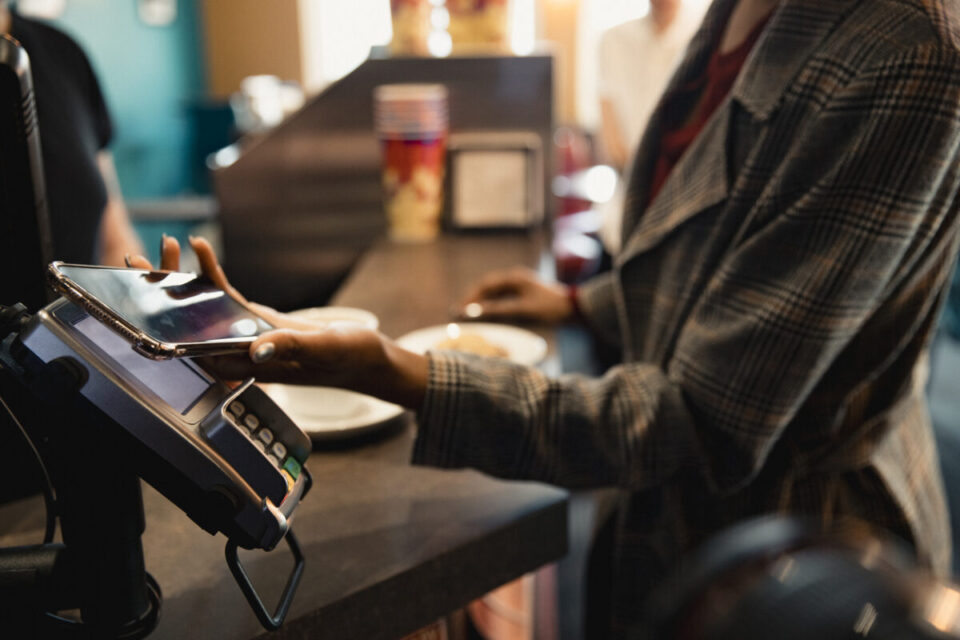While the pandemic has posed challenges for everyone, it’s also sped up innovation and digitisation across several sectors. With small businesses being one of the hardest-hit groups, Mastercard has launched a new set of solutions, including ‘Tap on Phone’ that turns every phone into an acceptance device, designed to help this vital sector of the economy survive the impact of the pandemic.
As consumers adapt to the pandemic’s realities, everything is going digital at significantly accelerated rates. We’re seeing sharp rises in eCommerce and a general shift towards interactions that don’t involve contact. However, this does not mean that in-person transitions are going away any time soon. Instead, companies like Mastercard are offering new solutions that recognise the changes in how consumers make in-person payments.
“We’ve been working for several years to advance contactless payments and simple acceptance solutions,” says Blake Rosenthal-Herman, Executive Vice President at Mastercard and Global Head of Acceptance Solutions. “This year, that has set the stage for Tap on Phone as being more critical for acceptance than ever before, as over 41% of in-person transactions globally are now contactless.”
Mastercard believes that contactless payment isn’t simply a trend driven by the pandemic and won’t go away after it ends. Citing recent research, Rosenthal-Herman shared that “3 in 4 consumers have said they’ll continue to use contactless payment, and 82% say it’s the clear way to pay.” This puts pressure on an estimated 130,000,000 small businesses worldwide that still rely on cash as the primary way for customers to pay, to rapidly begin accepting digital payments.
Small Businesses also one of the hardest-hit groups by the pandemic. Eighty-eight per cent of US small-business owners have exhausted their Paycheck Protection Program (PPP) loan, says a new report from Babson’s Goldman Sachs 10,000 Small Businesses program. “Approximately two-thirds of small businesses have pivoted to new revenue sources or adapted their business model in response to the current crisis.”
Small Business is an important part of the economy. According to research by The World Bank, “Small represents about 90% of businesses and more than 50% of employment worldwide.” However, even as consumer spending behaviours are shifting, survival has trumped investment in new technologies during these challenging times, including digital payments.

As Mastercard considered how to use its global reach to help the small businesses and merchants hit hardest and efficiently capitalize on shifting consumer behaviours, it considered the main barriers; cost, and maintenance and landed on a simple solution called Tap on Phone, a new offering that turns a mobile phone into a contactless payments acceptance device.
Now, any NFC-enabled of the roughly 2 billion android mobile devices globally can accept contactless payments from debit or credit cards, mobile wallets, and wearables. When paired with technologies like PayCore or MYPINPAD, small businesses gain access to a low cost, terminal-free, low maintenance solution. As an added boost, the company has also raised the Card Holder Verification Limit (CVM), i.e., the payment amount merchants can accept for contactless payments in over 80 markets, removing the main barriers against adoption.
The company has partnered with over 100 companies worldwide to innovate in digital payments and launch new solutions designed to help small businesses unlock their potential and keep moving forward. This includes training to understand best practices and various certification processes and services to make it easier for them to get paid and have access to capital by going digital faster.
As we head into 2021, the consumer behaviours and retail experiences that will prevail through the pandemic and beyond seem to be those that recognize a new level of caution by both parties in a transaction. For merchants, this means more openness to technologies they’ve ruled out in the past. Simultaneously, for large network providers like Mastercard, it’s a chance to reset the baseline expectations of transactions and services.
In business, the focus is to be proactive versus reactive; with these new offerings, Mastercard is straddling the line between both. Instead, it’s taking a pragmatic approach that clearly recognizes challenges in the market that it has the ability to address. ‘Tap to Phone’ and other innovations show that Mastercard sees it can play an important role in advancing the digital economy overall by creating new paths of entry for businesses of all sizes while ensuring the fundamental consumer needs of trust and security are explicitly addressed throughout the ecosystem.



